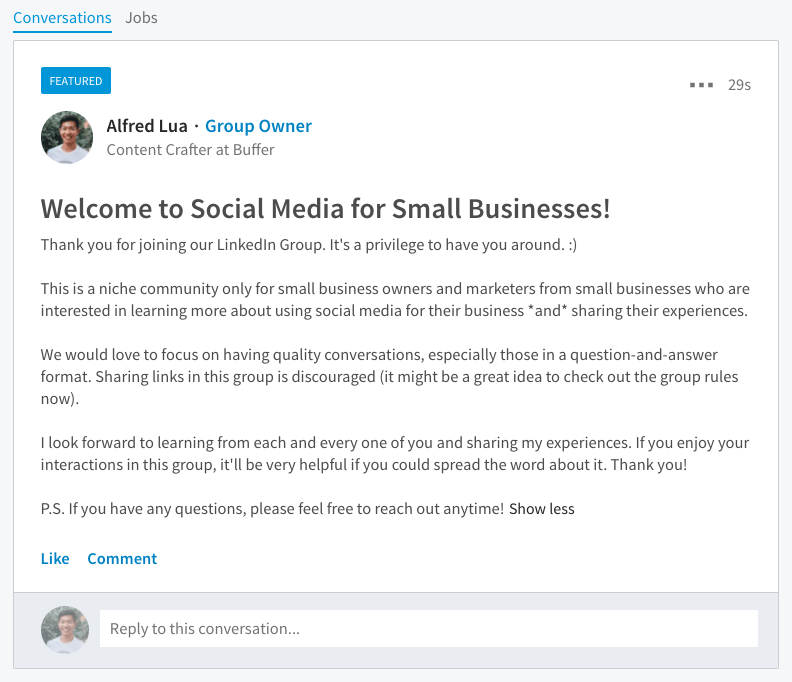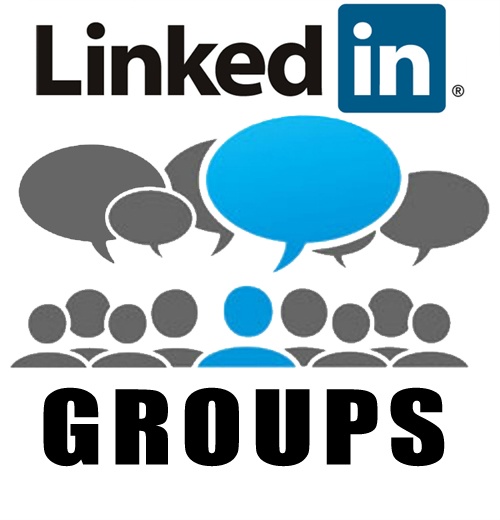

Seriously, though, groups can be a happening place. That said, with 756 million members to its name, LinkedIn isn’t actually as un-hip as it might sound! Want to find out more about LinkedIn or any other social media channels to empower you and your business, with Flow Online support? Then please call me, Alan, on 0117 9775776 or 07968 185544 or drop us an email.When you’re looking for a cool place to hang out, LinkedIn Groups might not be the first thing to come to mind. Remember when choosing which LinkedIn groups to join ask yourself the above questions, choose carefully and enjoy the interactive engaging community that you are now a part of. However for some people this has delivered a significant ROI for them personally and professionally, such as James in this article from Inc. Define a content strategy and schedule to keep the conversation energetic and engaging.Įnsure that all owners, managers or moderators understand their responsibilities and who is doing what and when.įind out more about LinkedIn group owner and admin roles.Ĭreating a community on LinkedIn may not be the right thing for you or your business, as it will require time and commitment to make it successful.Send out a personalised welcome message to any new members. I would recommend a daily post, perhaps each morning, when they are responding to any additional commentary from overnight. The most successful communities generate conversation daily.It is best practice to action this immediately and then explain to the circle why you took this action. Manage post and discussions – this means doing things such as deleting ‘spammers’ or people who are posting annoying, irrelevant content.

This should be defined within the ‘ About This Group’ section so that users have a clear understanding before asking to join. The key to success is to clearly define your objective and subject matter, then manage accordingly based on what you have outlined.However, there are a few additional points that are relevant to these specific roles: Tips for Setting Up and Managing a LinkedIn GroupĪll of the above points are also relevant to the owner, manager or moderator (the difference in roles is outlined in the link below). Follow up on your posts and respond to any questions or comments.Make posts relevant and helpful for members.You have chosen the right group/s to meet your own objectives, you are familiar with the rules and etiquette so it is now time to begin posting effectively for you and your personal brand. It’s OK to leave if the content becomes irrelevant, or if you are not gaining anything.Engage in the conversation it’s ok to have a differing opinion and this can make the discussion more interesting, but always be polite and respect others.Once you have chosen the right group/s to join, and have been accepted by the moderator, make sure that you read and follow the rules (there is a link for these underneath ‘ About This Group’). Don’t join lots of groups if you do not plan on engaging on some level. If you feel you that you are benefiting from being a member and acquiring knowledge then let your counterparts know. You may not feel confident enough to share your experience or offer an opinion, but you can try to join the conversation by asking questions or leaving comments.

You will get the most out of the experience if you actively interact.


 0 kommentar(er)
0 kommentar(er)
